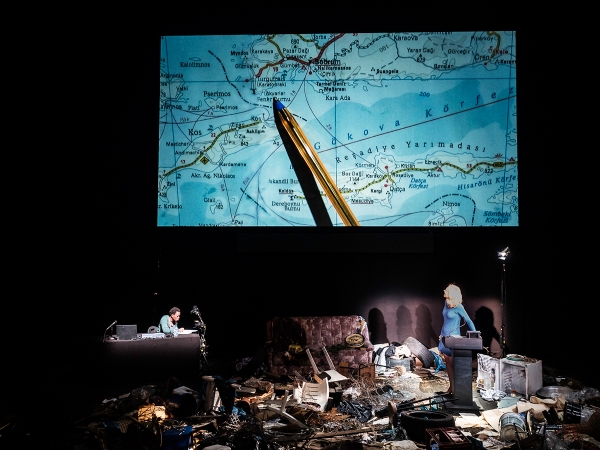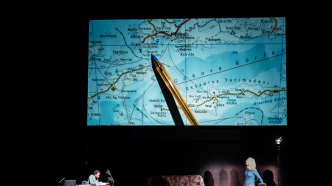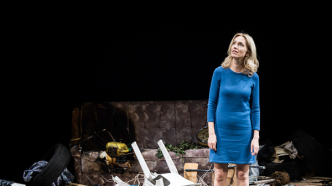Milo Rau Compassion. L’histoire de la mitraillette
[Theatre]In his hard-hitting shows, the Swiss director Milo Rau brings to the stage the violence of the world. Through the destinies of two women, both of whom have lived through the genocides in Africa, one a witness and the other a victim, he highlights the contradictions of our globalized societies. Can compassion have frontiers?
From the Ceaucescu trial to the “Dutroux case”, the burning issues that surround the violence of events of today’s world are at the heart of Milo Rau’s “shows”, and his International Institute of Political Murder, the production company he founded in 2007. Today, the plight of refugees is putting to the test the cohesion of our societies and their aptitude to show empathy. In Compassion. L’histoire de la mitraillette, he confronts the destinies of two women: the Swiss-born Ursina Lardi, an actress from Berlin’s Schaubühne troupe, in the role of a former member of an NGO who witnessed the massacres in Rwanda and Congo; and Consolate Sipérius, from Burundi, who plays herself, that of an actress who survived the genocide, and then came to Belgium later in life. Shifting between immediacy and distance, documentary theatre and mise en abyme, this double monologue, based on interviews with ONG personnel, priests and victims of the war themselves, unfurls in the setting of ransacked office, strewn with debris. Is this, perhaps, a way of figuring our upside-down societies in all their duplicity, passivity and pseudo-humanity? “Our economy is a globalized one, and yet our compassion stops at the frontier with Greece. The death of a child at the gateway to Europe induces a wave of sympathy and yet the deaths of thousands of people in central Africa goes unnoticed”, even though neo-colonial Europe, continues Milo Rau, “starts from central Africa”. According to Rau, a former student of Pierre Bourdieu, it would seem that the sole aim of theatre is to open our eyes to the spectacle of the misery in the world.






